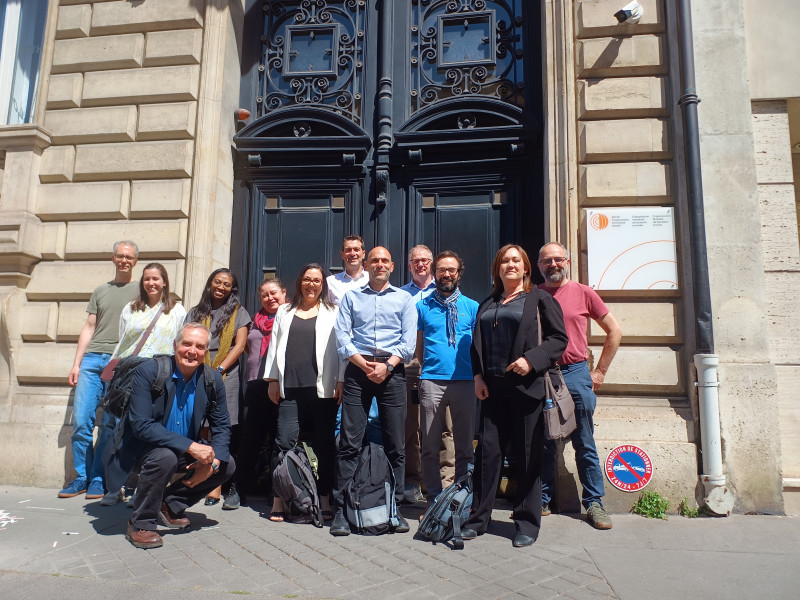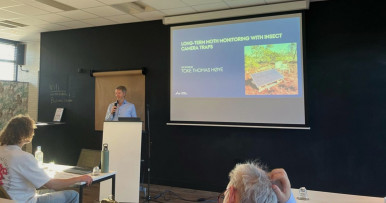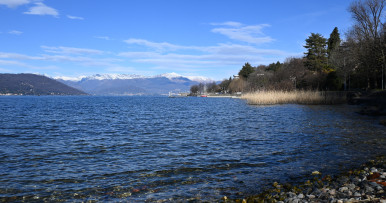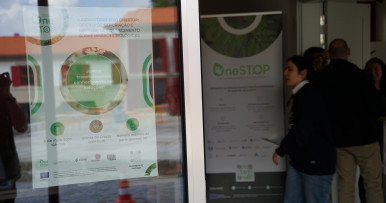Bridging Sectors to Tackle Invasive Alien Species
Authored by Quentin Groom from Meise Botanic Garden.
In April 2025, OneSTOP’s coordinator Quentin Groom had the pleasure of being invited by the Convention on Biological Diversity’s Inter-Agency Liaison Group on Invasive Alien Species to present on behalf of the Global Biodiversity Information Facility’s Task Group on Invasive Alien Species. The meeting, held in Paris, brought together representatives from a wide range of international organisations working to address the threat of invasive alien species (IAS) under Target 6 of the Kunming-Montreal Global Biodiversity Framework.
The Liaison Group was established to strengthen cooperation and coherence in the global response to IAS. Its mandate includes addressing regulatory gaps, promoting inter-sectoral collaboration and capacity building, improving access to reliable information, and fostering cooperation through national and regional focal points. This cross-cutting mission made the meeting a valuable platform for aligning actions across biodiversity, trade, health, agriculture, and data sectors.
Quentin’s presentation focused on the GBIF Task Group’s efforts to improve biodiversity data for research and policy support. He also took the opportunity to highlight how OneSTOP contributes to this agenda, particularly by enhancing data flows between biodiversity infrastructures and policy frameworks. OneSTOP is helping to make biodiversity data more interoperable, accessible, and policy-ready, which is essential for effective IAS detection, monitoring, and response.
During discussions on data management and availability, participants highlighted the need for consistent and reliable taxonomic information. Inconsistent taxonomy was seen as a challenge for effective risk assessment and coordination. The group emphasised the value of harmonised standards and sustained investment in taxonomic infrastructure, a priority shared by the OneSTOP project.
Other discussions ranged from island restoration and community-led IAS management to tourism’s dual role as a vector and a vulnerable sector. There was also interest in predictive technologies like AI for IAS detection and horizon scanning, as well as improving trade classifications to better track introduction pathways. Many expressed support for expanding FAIR-compliant IAS data and integrating more content into platforms like GBIF.
Quentin highlighted the IALG meeting as a rare opportunity to engage with stakeholders across disciplines who seldom work side by side. It reaffirmed the relevance of OneSTOP’s work in facilitating the kind of data integration that underpins effective global policy on IAS. It is clear that many of the themes discussed are closely aligned with our objectives and offer valuable guidance for our next steps.



